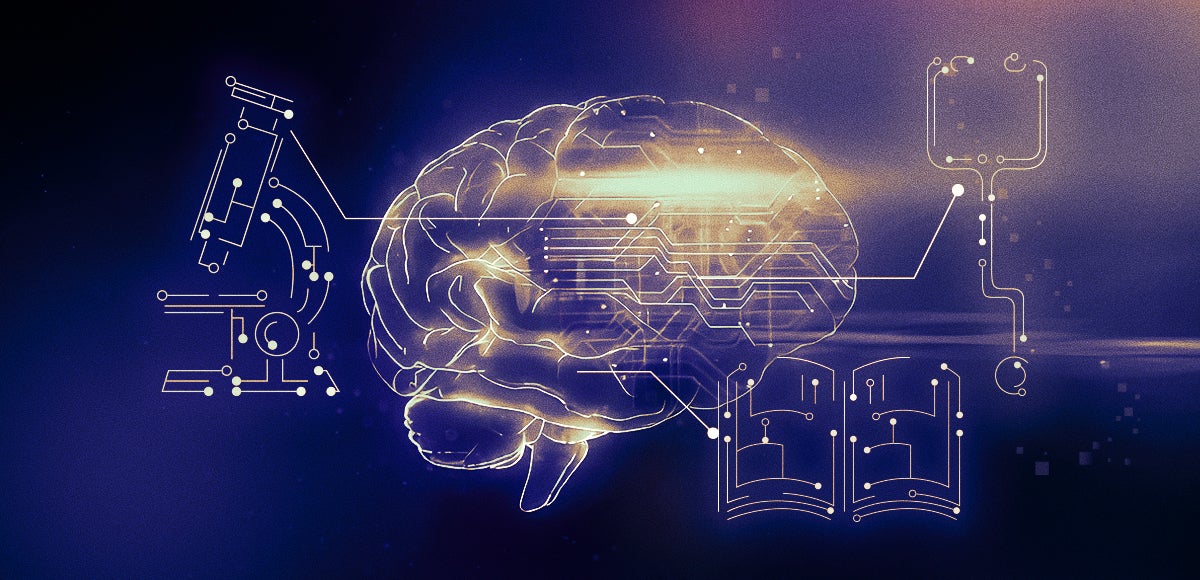
Welcome to the era of Artificial Intelligence (AI), where cutting-edge technology is revolutionizing every aspect of our lives. From self-driving cars to voice assistants like Siri and Alexa, AI has become an integral part of our daily routines. But did you know that AI also plays a significant role in information dissemination?
We will explore how AI is transforming the way information is shared and accessed, making it more efficient and accessible than ever before. So fasten your seatbelts as we dive into the incredible world of AI-powered information dissemination!

The role of AI in information dissemination
AI has become an invaluable tool in the realm of information dissemination. With its advanced capabilities, AI can efficiently gather, analyze, and distribute vast amounts of data to the masses. Through intelligent algorithms and machine learning techniques, AI systems are able to process information at a speed and accuracy that humans simply cannot match.
One primary role of AI in information dissemination is content curation. AI-powered algorithms can sift through an enormous amount of content from various sources, filtering out irrelevant or unreliable information while highlighting relevant and trustworthy sources. This helps users discover high-quality content tailored to their preferences and needs.
AI assists in personalized recommendations by analyzing user behavior patterns and preferences. By understanding individual interests, AI systems can deliver targeted suggestions for articles, news stories, or other forms of media that align with users’ specific tastes.
AI plays a crucial role in language translation services. Natural Language Processing (NLP) technologies enable real-time translation between different languages across various platforms such as websites or social media channels. This allows people around the world to access information regardless of language barriers.
Chatbots powered by AI have revolutionized customer service interactions by providing instant responses to queries 24/7. These virtual assistants enhance user experience by efficiently addressing frequently asked questions or resolving common issues without human intervention.
The role of AI in information dissemination is rapidly evolving as technology advances further. As we continue to embrace these advancements and overcome challenges along the way—such as bias detection and ensuring data privacy—we will witness even more efficient ways for people to access accurate and relevant information conveniently anytime they need it.
Advantages of using AI for information dissemination
AI, or artificial intelligence, has revolutionized the way information is disseminated in today’s fast-paced world. With its capabilities and advanced algorithms, AI offers numerous advantages in efficient information dissemination.
One major advantage is the speed at which AI can process and analyze data. Unlike humans who may take hours or days to sift through vast amounts of information, AI systems can do so in a matter of seconds. This allows for real-time updates and instant dissemination of relevant information.
AI eliminates the risk of human error that may occur during manual processing and dissemination. By automating these processes, accuracy is greatly improved as machines are not prone to fatigue or distractions.
AI enables personalized information delivery by analyzing user preferences and behavior patterns. This ensures that individuals receive tailored content that aligns with their interests and needs.
Another advantage is the scalability provided by AI systems. Whether it’s disseminating information to a small group or reaching millions of people simultaneously, AI can handle large volumes without compromising on quality or speed.
Machine learning algorithms incorporated within AI systems continually improve over time based on user feedback and interactions. This means that as more data is processed, the efficiency and effectiveness of information dissemination will only increase.
Challenges and limitations of AI in this context
While AI has proven to be a powerful tool for information dissemination, it is not without its challenges and limitations. One major challenge is the potential for bias in AI algorithms. Since these algorithms are trained on historical data, they may inadvertently perpetuate existing biases or stereotypes. This can lead to the spread of misinformation or the exclusion of certain voices and perspectives.
Another limitation is the lack of human judgment and intuition that AI possesses. While AI can process vast amounts of data at incredible speeds, it may struggle to accurately interpret nuanced or complex information. This can result in errors or misinterpretations in disseminating crucial information.
There are concerns about privacy and security when utilizing AI for information dissemination. As AI systems collect and analyze large amounts of personal data, there is a risk that this sensitive information could be compromised or used without appropriate consent.
Technical limitations such as hardware constraints or connectivity issues can hinder the effectiveness of using AI for widespread dissemination purposes.
Despite these challenges and limitations, continuous advancements in technology offer hope for overcoming these obstacles. Researchers are actively working on developing more transparent and accountable AI systems that prioritize fairness and accuracy. Additionally, efforts towards ensuring robust cybersecurity measures will help address privacy concerns associated with using AI technologies.
Future possibilities and potential advancements in AI for information dissemination
The future of AI in information dissemination holds great promise and potential. As technology continues to advance at a rapid pace, we can expect AI to play an even bigger role in how information is disseminated and consumed.
One area where AI could make significant advancements is in personalized content delivery. With the help of machine learning algorithms, AI can analyze user preferences, behaviors, and patterns to deliver tailored content that matches individual interests. This would not only enhance user experience but also increase engagement and relevance.
Another exciting possibility is the use of natural language processing (NLP) algorithms to improve the accuracy and efficiency of information dissemination. NLP can enable machines to understand human language more effectively, allowing for better comprehension of complex concepts and nuances. This could result in more accurate translations, automated summarization, and improved search engine capabilities.
AI-powered chatbots are already making waves in customer service, but their potential for information dissemination goes beyond simple queries. In the future, chatbots could become intelligent conversational agents capable of engaging users in meaningful discussions about specific topics or providing expert advice on various subjects.
While there are still hurdles ahead when it comes to fully harnessing the potential of AI for information dissemination purposes – such as ensuring unbiased algorithms – there is no denying its transformative impact so far. The continuous development of artificial intelligence opens up new doors for efficient knowledge sharing across various platforms while enabling us all with greater access to valuable insights from around the world.
The importance of embracing technology for efficient information dissemination
Embracing technology for efficient information dissemination is of utmost importance in today’s fast-paced world. AI’s contribution to this process cannot be understated. With its capabilities, AI has revolutionized the way we access and share information.
By harnessing the power of AI, organizations can streamline their processes and ensure that accurate and relevant information reaches the intended audience in a timely manner. From automated content curation to personalized recommendations, AI helps optimize the dissemination process, improving efficiency and effectiveness.
One of the key advantages of using AI for information dissemination is its ability to analyze vast amounts of data quickly. AI-powered algorithms can sift through mountains of information to identify trends, patterns, and insights that would otherwise take humans hours or even days to uncover. This allows for faster decision-making and enables businesses and individuals alike to stay ahead in an increasingly competitive landscape.
AI can also enhance user experiences by tailoring content based on individual preferences and past behaviors. By leveraging machine learning algorithms, AI systems can understand user preferences better over time, delivering more targeted and engaging content. This personalization not only increases engagement but also fosters trust between users and content providers.
Looking into the future possibilities for advancements in this field shows great promise. As technology continues to evolve rapidly, we can expect further improvements in natural language processing capabilities which will enable more sophisticated interactions between humans and machines. Enhanced voice recognition technologies along with real-time translation tools could bridge language barriers effectively across different platforms, further expanding the reach of information dissemination.

